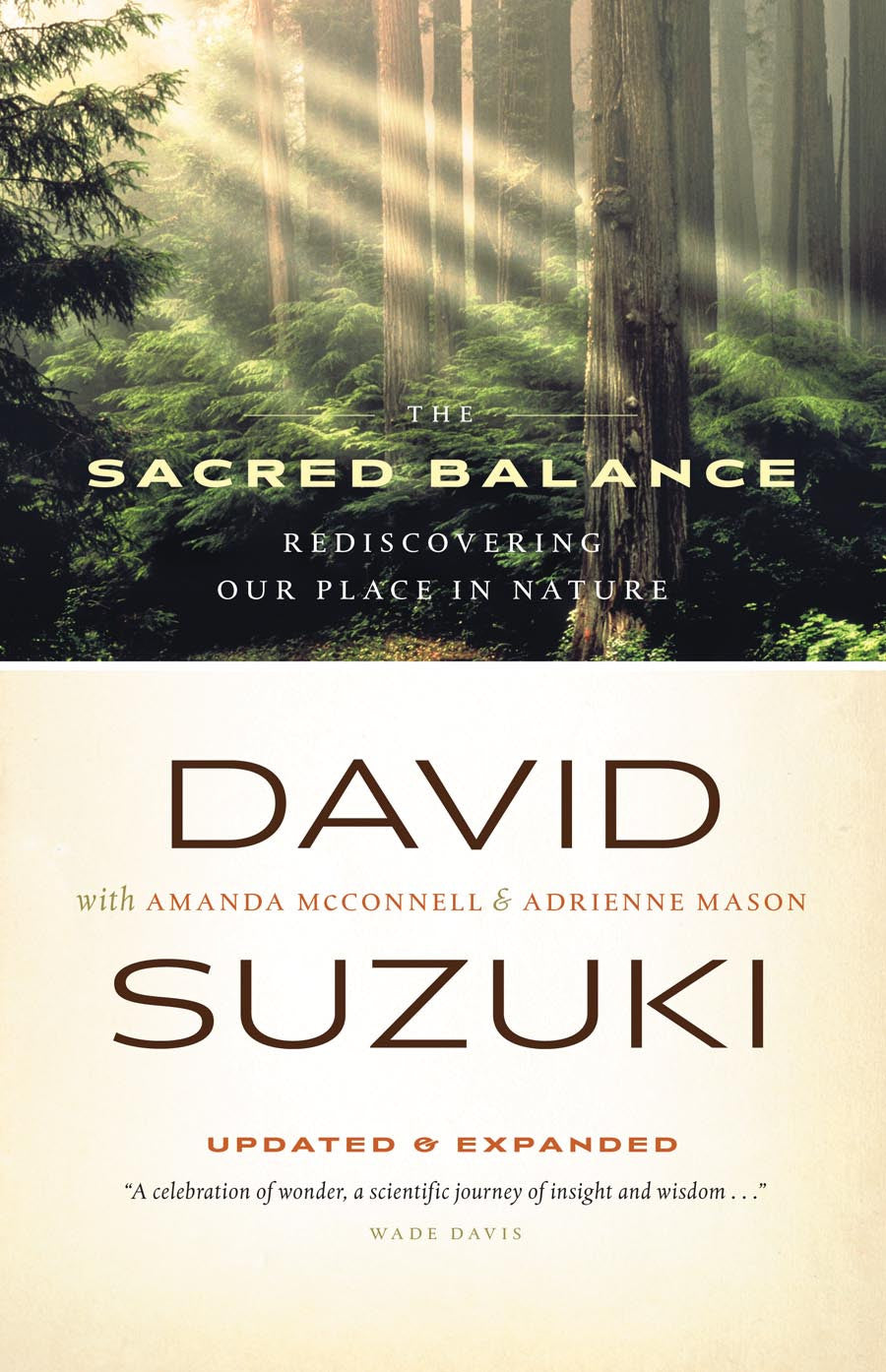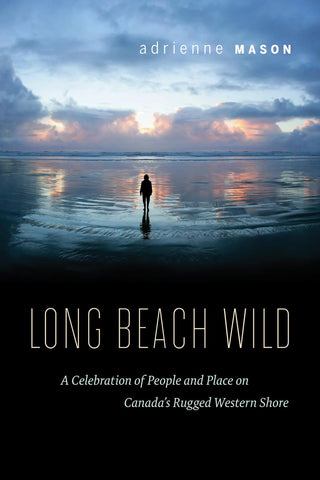The Sacred Balance
Rediscovering Our Place in Nature, Updated and Expanded
- ISBN: 9781553651666
- Tags: Adrienne Mason, Amanda McConnell, David Suzuki, Nature & Environment,
- Dimensions: 5.5 x 8.5
- Published On: 8/30/2007
- 320 Pages
- ISBN: 9781926685496
- Tags: Adrienne Mason, Amanda McConnell, David Suzuki, Nature & Environment,
- Published On: 01/05/2009
- 320 Pages
This special 10th-anniversary edition reexamines our place in the natural world in light of sweeping environmental changes and recent advances in scientific knowledge.
Since The Sacred Balance was first published in 1997 global warming has become a major issue, with alarming effects being observed on all continents and in the world's oceans. Scientists have also made significant discoveries in various realms, including the state of world ecosystems, the science behind the mother/baby interaction, and the workings of the brain.
In this new and extensively revised and amplified edition of his bestselling book, David Suzuki reflects on these changes and examines what they mean for our place in the world. His basic message remains the same: we are creatures of the Earth, utterly dependent on its elements, which are not just external factors, but incorporated into our very essence. Also available in an illustrated edition.
All royalties from The Sacred Balance go to the David Suzuki Foundation.
Published in partnership with the David Suzuki Foundation.
David Suzuki is an internationally renowned geneticist and environmentalist and a recipient of UNESCO’s Kalinga Prize for the Popularization of Science and the 2009 Right Livelihood Award. Host of the longrunning CBC television program The Nature of Things, he is also the author of more than fifty books.
Adrienne Mason has lived on Vancouver Island all her life and spent twenty years on the west coast, first in Bamfield and then Tofino. As well as writing a local history column for Tofino Time, she is the author of numerous books and magazine articles about science, nature, and west coast history. Her most recent titles include West Coast Adventures, The Green Classroom, and The Nature of Spiders.
"David Suzuki reminds us of our unlikely origins and makes an eloquent plea for the millennium, finding peace on and with the Earth." -David Brower
"Suzuki's eloquent plea is to recognize that if we are to get back into balance with the natural world that supports us, we need to look at the real bottom line. We are biological beings and our very existence depends on the integrity and quality of the web of life." -Paul Ehrlich
"The finest work to date by Canada's leading environmentalist, The Sacred Balance is a celebration of wonder, a scientific journey of insight and wisdom, and a profound meditation on the complexity and fragility of the biological and physical forces that sustain all life on Earth." -Wade Davis
"This book is the most complete expression to date of an environmental ethic from one of the world's leading conservation writers, combining science, theology, poetry and philosophy to express a world view towards which the human species must shift in the twenty-first century. The Sacred Balance has a beautiful spirit." -E.O. Wilson
"The Sacred Balance is both vintage Suzuki and the new, improved 2008 model. The book should read like a re-tread given the sudden climate change concern crazy and the proliferation of bloggers and politicians jumping on the bullet-train bandwagon. Yet, Suzuki's book makes his own perspective sound fresh, inventive, original and - gasp! - actually readable! Seriously." -CD Syndicated
"The Sacred Balance is most impressive for the masterful way Suzuki blends hard, cold scientific data with a much more holistic understanding of how we human animals are more than just the sum of our natural parts. This perspective is clear from the get go . . . As Suzuki speaks to our hearts and our minds, he inspires us to renew our interest in nature's wonders, return our very natural bodies to their proper place in the natural cycle, and restore the natural balance on Earth that we have disrupted. And that is the message we should take to heart." -Sustainablog
"This 10-year edition of Suzuki's landmark bestseller has been extensively revised, taking into account the past decade's sweeping environmental changes and advances in science." -Globe & Mail
From the Prologue
A SHATTERED WORLD
As we have shifted our status to superspecies, our ancient understanding of the exquisite interconnectivity of all life has been shattered. We find it increasingly difficult to recognize the linkages that once gave us a sense of place and belonging. After all, we are flooded with food and goods that come from all parts of the world, so we scarcely notice that it’s the middle of winter when we are buying fresh strawberries and cherries. The constraints of locality and seasons are pushed aside by the global economy.
Exacerbating the fragmentation of the world has been the stunning shift from predominant habitation in rural village communities to concentration in large cities. In big cities, it becomes easy to assume that we differ from all other species in that we create our own habitat and thereby escape the constraints of nature. It is nature that cleanses water, creates air, decomposes sewage, absorbs garbage, generates electricity and produces food, but in cities, these “ecosystem services” are assumed to be performed by the workings of the economy.
To make matters worse, as we look towards more and more esoteric sources for our information, the context, history and background needed to set new “facts” or events in place are lost, and our world is broken up into disconnected bits and pieces. While we look to science to reveal the secrets of the cosmos, its primary methodology of reductionism focuses on parts of nature. And as the world around us is examined in pieces, the rhythms, patterns and cycles within which those pieces are integrated are lost, and any insights we gain become illusions of understanding and mastery. Finally, as transnational corporations, politics and telecommunications move onto the global stage, the sense of the local is decimated.
This, then, is where we are at the beginning of the third millennium. With explosive speed, we have been transmogrified from a species like most others that live in balance with their surroundings into an unprecedented force. Like a species introduced into a new environment free of constraints, we have expanded beyond the capacity of our surroundings to support us. It is clear from the history of the past two centuries that the path we embarked on after the Industrial Revolution is leading us increasingly into conflict with life support systems of the natural world. Despite forty years of experience in the environmental movement we have not yet turned onto a different path.


